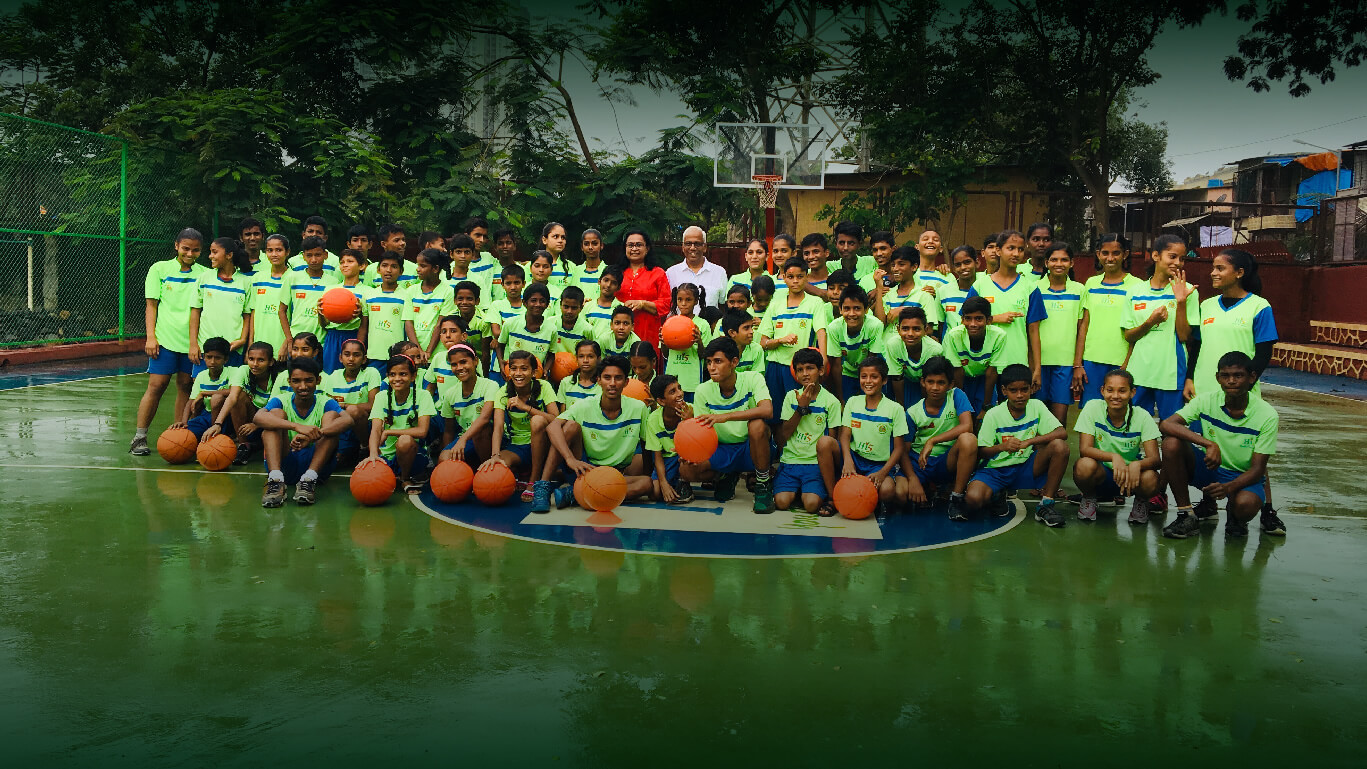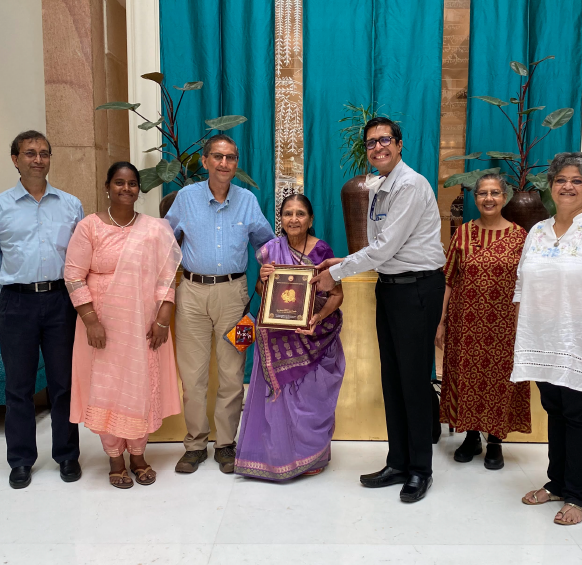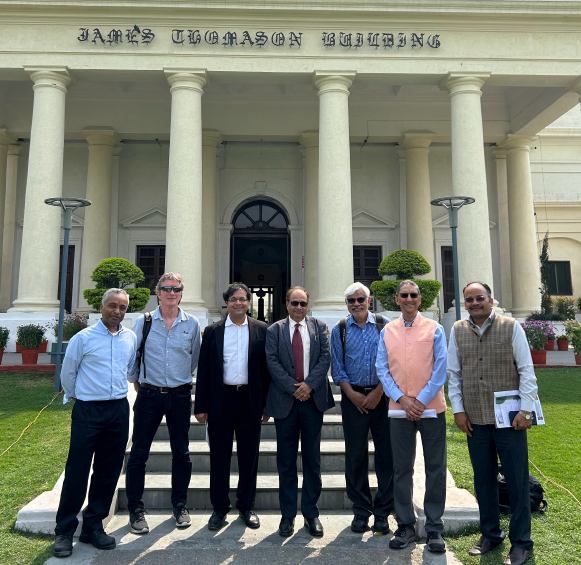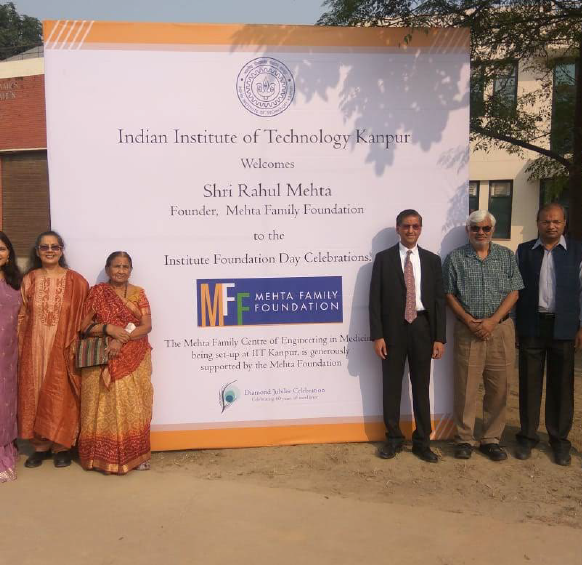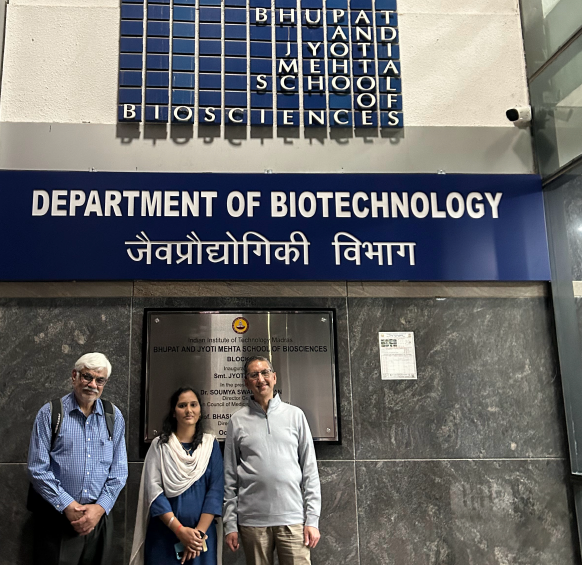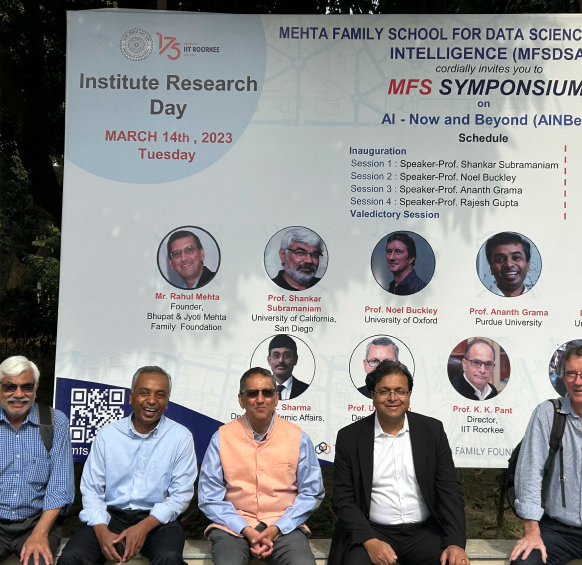Pioneering Pathways: Institution Building and Catalyzing Talent for India's Technological Transformation
In an era of rapid technological advancement, India's potential as a global tech innovator is undeniably promising. With ambitious goals for India@100 on the horizon, the imperative to nurture talent in science and technology that can fuel rapid growth has never been more critical. Therefore, creating new academic programs beyond the scope of those currently offered in India can provide opportunities for the nation’s brightest minds to propel India towards greater achievements by 2047.
Recognizing this need, the Bhupat & Jyoti Mehta Family Foundation (MFF) led by philanthropist Rahul Mehta and his family, has embarked on a mission with a clear purpose — to cultivate the intellectual talent of emerging technology fields in India by fostering collaborative relationships between leading international faculty and Indian academic institutions. By forging such partnerships, MFF aims to pave the way for a thriving ecosystem in data science, artificial intelligence, biosciences, biomedical engineering, and other emerging disciplines in India.
How the Journey Began
From humble beginnings in Mumbai, India, Rahul went to the United States at age 17 to attend the University of Houston as a computer science major. A class project in a senior computer science course sowed the seeds for his first company in 1985. The pivotal moment in his wealth creation materialized in 1996, with the sale of his maiden US-based company. Rahul made a conscious decision to channel his new wealth into philanthropy by establishing MFF with his siblings and their respective spouses: Nisha, Jainesh and Mamta, Dharmesh and Archana.
Based in Houston, Texas, USA, the Foundation stands as a tribute to the enduring legacy of Bhupat and Jyoti Mehta by their children. When asked about the motivation behind his giving, Rahul shared, “My aim is to provide the current generation of Indian students opportunities that were not available to me in India.”
On launching MFF, Rahul sought to contribute to India's economic growth, yet he grappled with where to begin. First, he took small steps by funding NGOs and smaller social projects in India back in 1996. “It was only natural that I wanted to make a difference in India's social fabric, as it's where I grew up,” he said. As his giving journey evolved, MFF provided scholarships to students from both the USA and India. This initiative cultivated a culture where international scholarship recipients gathered with the Mehta family, engaging in conversations and exchanging ideas. Reflecting on a deep bond with one of his scholarship recipients, Rahul shared, “I still remember the time I traveled with Marina back to her home in Bulgaria. Her parents’ expression of deep gratitude for the support of a small scholarship remains etched in my memory. She is like family now, and this aspect of philanthropy is what I cherish most.”
With a steadfast commitment to global progress, MFF has funded over 100 organizations dedicated to advancing access to education and healthcare for over 20 years.

Rahul Mehta and students of the Department of Biotechnology at IIT Madras

How MFF is nurturing intellectual talent in emerging scientific fields in India
Evolving for Excellence
Over the years, MFF has transitioned from micro-level projects, while deeply satisfying, to focusing on macro-level endeavors. After extensive travel across India and educating himself on strategic philanthropy, Rahul realized the best avenue was to dedicate the Foundation's time, effort, and funds to developing centers of excellence in emerging scientific fields in the Indian Institute of Technology (IIT) campuses.
Identifying the latent potential within India's premier institutes, Rahul perceived an untapped opportunity that could enhance students' educational journeys. These institutions, while heavily reliant on government assistance, were constrained by limitations. Driven by a vision to invigorate their existing academic programs, he looked to establish specialized learning hubs within the campuses of these top-tier universities, much akin to practices in the United States. These learning centers provide opportunities for cross-discipline research and collaboration throughout India.
MFF's current focus is on developing intellectual excellence in India through global academic collaboration. This vision materializes through the creation of innovative bachelor's, master's, and doctoral programs within the IIT campuses located in Madras, Kanpur, Guwahati, and Roorkee. MFF's strategic approach ensures the success of these programs by bridging the expertise of distinguished international faculty with their counterparts in India.
In 2006, MFF observed that IITs were excellent in traditional engineering fields but had potential for biosciences-related academic programs. Delving deeper, Rahul unearthed a substantial dearth of healthcare research and development talent in general. He observed, “Within MD Anderson Cancer Center in Houston, there exists more researchers than the cumulative total across all of India.” MFF’s imperative focused on nurturing and retaining talent within India's healthcare sector, aligning with the anticipated trillion-dollar healthcare and bioscience marketplace that is projected to emerge in the coming decades. Additionally, the Foundation aimed to tackle unique healthcare challenges specific to the nation.
This observation led to the establishment of The Bhupat and Jyoti Mehta School of Biosciences at IIT Madras in 2006. The initiative propelled biological science and engineering, and computational biology to the forefront in India. The school's faculty and students are now engaged in addressing infectious diseases like malaria and tuberculosis, gene editing, pancreatic and breast cancer research, novel biomaterials for drug delivery, and other areas of research.
Similarly, the Mehta Family Center for Engineering in Medicine at IIT Kanpur, established in 2019, drives pioneering research in regenerative medicine, digital medicine, and molecular medicine and engineering. For example, using structural engineering to create the scaffolding to grow organs, machine tool design to create instruments for surgeons, prosthetics and more.
In 2017, Rahul, with his colleague Bernie Luksich, co-authored a research paper on Data Science and Artificial Intelligence, highlighting India's potential in the field. The duo pitched this vision to all IITs, inviting them to create new programs in these areas. Their pitch, however, faced challenges. “Despite our relationships with IITs, garnering support was not easy,” Bernie Luksich, Executive Director at MFF said.
After three years of effort, MFF finally reached an agreement with IIT Guwahati to create the first Mehta Family School of Data Science and Artificial Intelligence in 2020. “This is a pivotal initiative addressing the scarcity of skilled personnel in these emerging fields,” explained TG Sitharaman, Former Director at IIT Guwahati. In 2021, IIT Roorkee and MFF launch the second school of data science and AI. Both these schools offer students a robust theoretical foundation and interdisciplinary applications to tackle pressing societal issues.
The creation of the Jyoti and Bhupat Mehta School of Health Sciences and Technology at IIT Guwahati in 2022 brought additional opportunities within the fields of biosciences, medicine, and engineering. The school is training interdisciplinary biomedical engineers for leadership responsibilities in the health sector. In the aftermath of a worldwide pandemic and to support India’s Northwest region, MFF felt the ever-increasing urgency in their commitment to building intellectual talent in India to positively impact the health of India’s population far into the future.
Ultimately, these five schools will recruit over 100 faculty members, and have more than 1,500 bachelor’s, master's, and doctorate students enrolled in these programs.
MFF also created The Mehta Engineering Scholar program in partnership with Rice University, Houston, allowing Indian students to conduct groundbreaking research at Rice. MFF aspires to elevate the academic caliber of India's institutions to greater heights, nurturing a highly skilled and well-rounded workforce poised to drive innovation, catalyze economic growth, and establish India as a global technology leader.
However, this journey was by no means easy.

Rahul Mehta at the inauguration of the Mehta Family School of Data Science and Artificial Intelligence at IIT Roorkee
Embracing the Path Forward
With a giving journey spanning two decades, Rahul envisions a bold future of international academic collaborations towards India@100. MFF’s future trajectory is focused on reshaping India's research ecosystem, forging robust partnerships between Indian and American institutes to amplify exposure and foster collaboration. To achieve this, MFF aspires to catalyze systemic change that shifts power dynamics in higher education to benefit students. Rahul emphasized the importance of a collaborative approach between nations to transform India's educational landscape and shared, “Our next aim is to facilitate partnerships between American and Indian universities, promoting faculty and student exchange programs to strengthen the research culture we aspire to build.”Rahul's insights for emerging philanthropists resonate with the lessons he's gathered along his own journey. He emphasized the value of starting small, experimenting to identify effective approaches, and using these insights to hone the focus of one's philanthropic endeavors. Moreover, he stressed the importance of patience and resilience in philanthropy, highlighting the fact that there is no predefined blueprint or one-size-fits-all-success formula.
In Rahul’s words, “Forge your own path; don’t wait for others to show you the way. True impact doesn’t materialize overnight; it’s a lifelong journey, a series of dedicated steps. Focus, focus, focus and be resilient. Your efforts may not yield immediate results, but they are the seeds of lasting change.”
Inspired thinking presented by

YOU MAY ALSO LIKE


